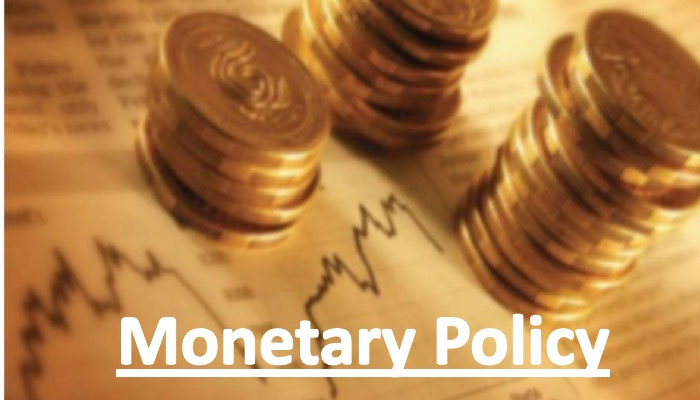‘Monetary policy widens rich-poor divide’
KARACHI: State institutions should find correlations of social implications of all policies of the country’s central bank, particularly monetary policy, economists said on Tuesday.
These views were expressed by speakers at a roundtable titled “Understanding Social Implications of Monetary Policy in Pakistan” organised by Sustainable Development Policy Institute (SDPI).
There was consensus among the experts that it would enhance the monetary policy’s importance in socioeconomic dimensions and influence over the graph of poverty and development at a national level.
Dr Safia Minhaj, Assistant Professor, University of Karachi, said, “The monetary policy in Pakistan creates inequality between the rich class and poor, which should be examined and assessed in the long run”.
She was of the view that lending in Pakistan is accessible to the rich class as the commercial banks finance the businesses having collateral and assets to show, hence the informal lending has been on the rise particularly in the commercial capital of Pakistan, Karachi.
Dr Sajid Amin Javed, Research Fellow, SDPI said the monetary policy should be treated as the public policy which is equally relevant and important for masses as similar to managers and businesses.
“The purpose to highlight the issue into mainstream was not to criticize the function of the SBP but to strengthen its status and scope of work, which should be broader than the present role, ideally, whereas the institution should be held accountable on its core functions of inflation and foreign exchange stability,” Javed said.
He said there should be no political intervention in the business of the SBP but the public sector institution should be autonomous which could operate independently through its schemes and policies targeting the welfare of the public like the Reserve Bank of New Zealand.
“Inclusivity and better coordination between policy stakeholders is essential for effective design, development, implementation, and monitoring and evaluation of monetary policy resulting in balanced economic growth and social development in Pakistan implied in controlled inflation and price stability,” he added.
-
 Andrew, Sarah Ferguson Refuse King Charles Request: 'Raising Eyebrows Inside Palace'
Andrew, Sarah Ferguson Refuse King Charles Request: 'Raising Eyebrows Inside Palace' -
 Adam Sandler Reveals How Tom Cruise Introduced Him To Paul Thomas Anderson
Adam Sandler Reveals How Tom Cruise Introduced Him To Paul Thomas Anderson -
 Washington Post CEO William Lewis Resigns After Sweeping Layoffs
Washington Post CEO William Lewis Resigns After Sweeping Layoffs -
 North Korea To Hold 9th Workers’ Party Congress In Late February
North Korea To Hold 9th Workers’ Party Congress In Late February -
 All You Need To Know Guide To Rosacea
All You Need To Know Guide To Rosacea -
 Princess Diana's Brother 'handed Over' Althorp House To Marion And Her Family
Princess Diana's Brother 'handed Over' Althorp House To Marion And Her Family -
 Trump Mobile T1 Phone Resurfaces With New Specs, Higher Price
Trump Mobile T1 Phone Resurfaces With New Specs, Higher Price -
 Factory Explosion In North China Leaves Eight Dead
Factory Explosion In North China Leaves Eight Dead -
 Blac Chyna Opens Up About Her Kids: ‘Disturb Their Inner Child'
Blac Chyna Opens Up About Her Kids: ‘Disturb Their Inner Child' -
 Winter Olympics 2026: Milan Protestors Rally Against The Games As Environmentally, Economically ‘unsustainable’
Winter Olympics 2026: Milan Protestors Rally Against The Games As Environmentally, Economically ‘unsustainable’ -
 How Long Is The Super Bowl? Average Game Time And Halftime Show Explained
How Long Is The Super Bowl? Average Game Time And Halftime Show Explained -
 Natasha Bure Makes Stunning Confession About Her Marriage To Bradley Steven Perry
Natasha Bure Makes Stunning Confession About Her Marriage To Bradley Steven Perry -
 ChatGPT Caricature Prompts Are Going Viral. Here’s List You Must Try
ChatGPT Caricature Prompts Are Going Viral. Here’s List You Must Try -
 James Pearce Jr. Arrested In Florida After Alleged Domestic Dispute, Falcons Respond
James Pearce Jr. Arrested In Florida After Alleged Domestic Dispute, Falcons Respond -
 Cavaliers Vs Kings: James Harden Shines Late In Cleveland Debut Win
Cavaliers Vs Kings: James Harden Shines Late In Cleveland Debut Win -
 2026 Winter Olympics Snowboarding: Su Yiming Wins Bronze And Completes Medal Set
2026 Winter Olympics Snowboarding: Su Yiming Wins Bronze And Completes Medal Set




